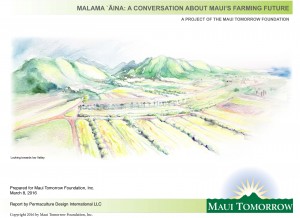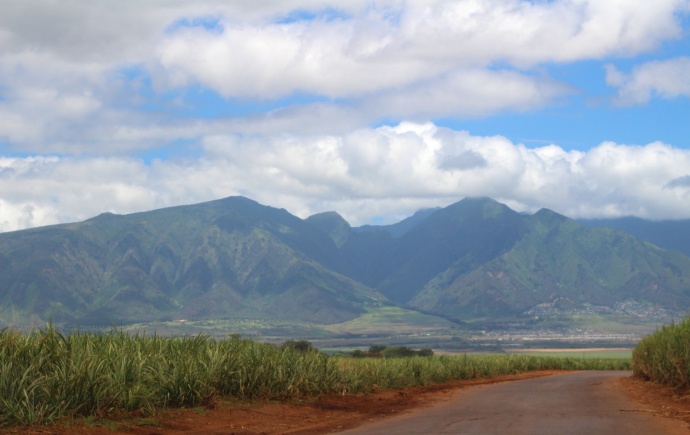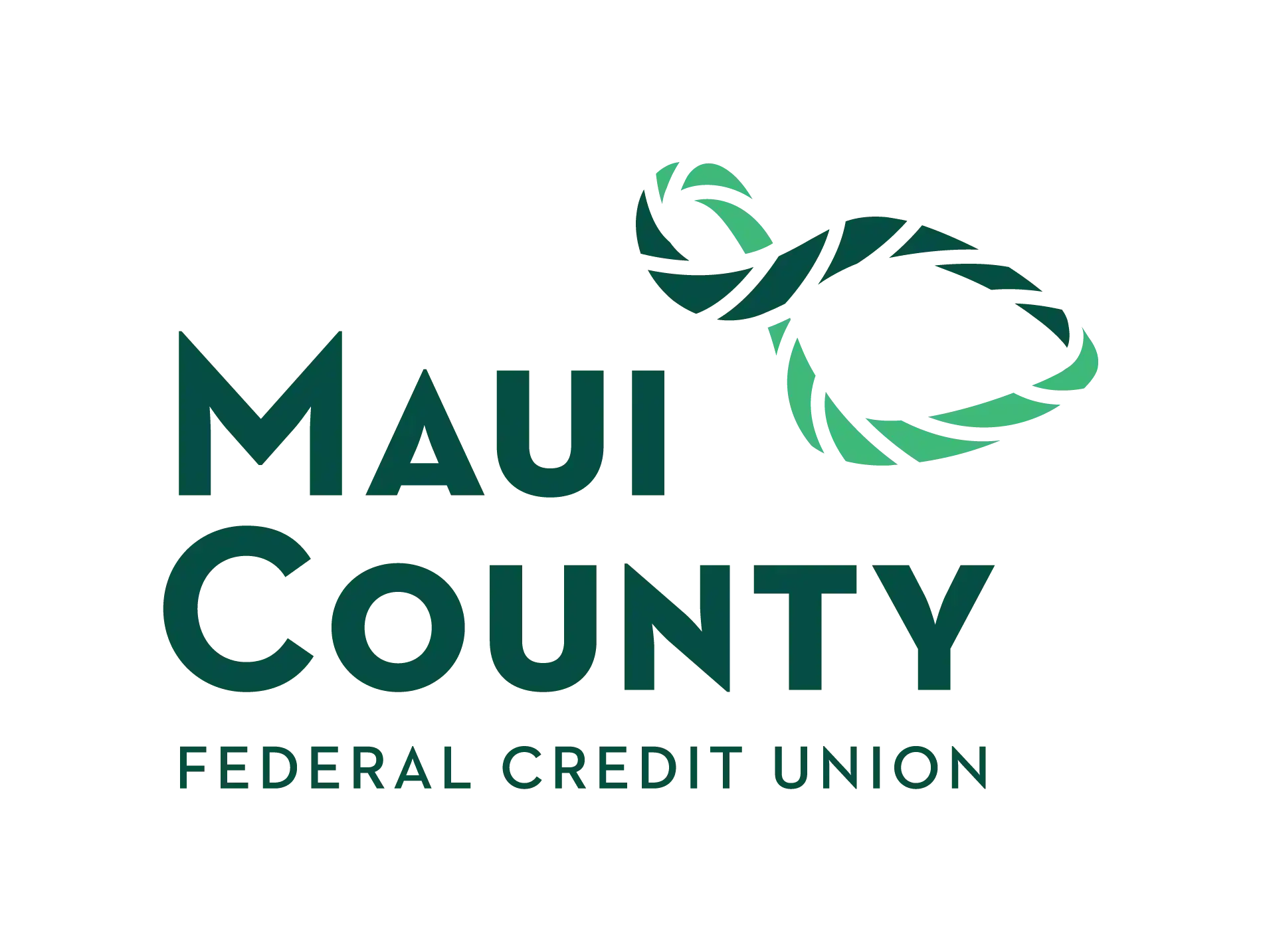Maui Tomorrow Issues Report on the Future of Farming on Maui

Mālama ‘Āina: A Conversation About Maui’s Farming Future. Report cover image courtesy Maui Tomorrow Foundation.
A new report issued today by Maui Tomorrow estimates a doubling of jobs and tripling of revenue post-sugar. The Mālama ‘Āina: A Conversation About Maui’s Farming Future report, was prepared for the non-profit environmental advocacy organization by Permaculture Design International LLC.
The report is downloadable at the Future of Maui website, where members of the public, local business leaders, farmers and political candidates are invited to present their own comments and ideas about what might be grown on 36,000 acres.
“We believe that this unique opportunity to expand the vision of what’s possible for agriculture on Maui can result in a win-win-win situation for all concerned,” Albert Perez, Executive Director of Maui Tomorrow said in an organization press release.

HC&S sugar cane fields in Kahului. File photo by Wendy Osher.
“By moving beyond sugar to more sustainable uses, we estimate that this land can easily support more than double the 675 employees HC&S is planning to lay off, while generating at least triple the benefit for our local economy,” said Perez. “Regenerative agriculture can also help to capture atmospheric carbon, thus offsetting climate change instead of contributing to it. By becoming a center for regenerative agricultural education, Maui can also kick-start a new industry and share our knowledge with the world,” he said.
Maui Tomorrow Board member Michael Howden, a permaculture designer and licensed acupuncturist also commented saying, “I am excited about the opportunity that the imaginative, industrious, health conscious leaders of Mauiʻs farm and food community now have.”
He continued, “We can engage in best practices derived from traditional Hawaiian knowledge, as well as techniques from around the world, to care for our sacred land and water resources. I believe that working together, the people of Maui will end the era of chemical agriculture – and what has proven to be toxic agriculture – and improve the health of our soil, our water, and our coastal ecosystems, while increasing jobs and improving the bottom line for our economy.”
Alika Atay, a part-Hawaiian farmer who combines permaculture with traditional farming practices and was consulted for the report. He said he looks forward to hearing various viewpoints about the most beneficial ways forward for the sugar plantation lands. “As guardians of our island’s environment, we must remember our values. This is an opportunity to go back to the values that Maui people were raised with,” said Atay. “Mālama ʻĀina, Aloha ʻĀina – this is how we were raised. We need to go back to the future. Hawai`i used to be 100% self-sufficient, but now we import 90% of our food. This report marks the beginning of a return to those values,” he said.
He continued saying, “Although the closure of the sugar plantation is a painful episode for many, we must embrace the future and open ourselves to this important opportunity to move with aloha for each other toward a sustainable, self-reliant, chemical-free agricultural future.”










